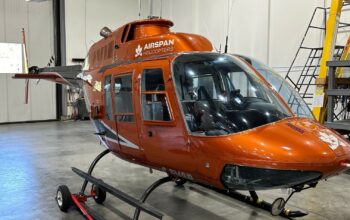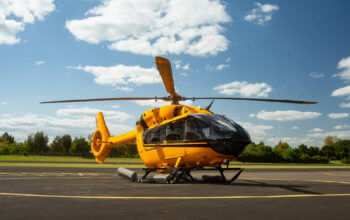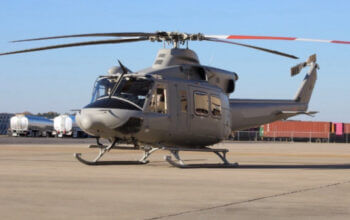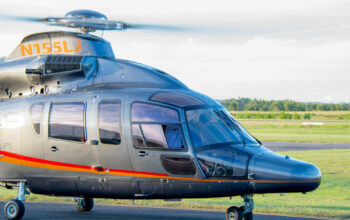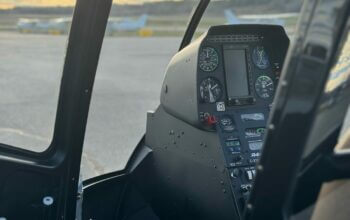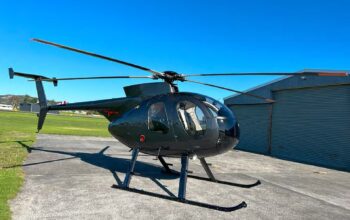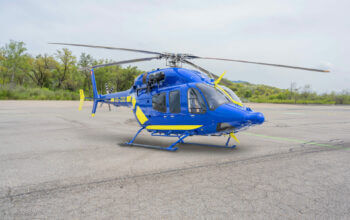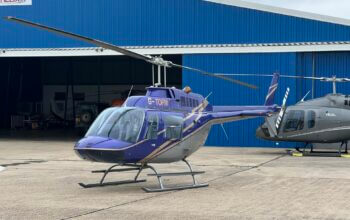Estimated reading time 5 minutes, 48 seconds.
A cargo airline startup that is developing software for autonomous flight has been awarded a $1.3 million contract by Transport Canada to begin flying autonomous cargo flights to remote northern communities.
Since being founded in 2020, Ontario-based Ribbit has developed both software and hardware that can be retrofitted onto a conventional fixed-wing aircraft to allow it to fly fully autonomously from gate to gate. In the 14 months following its pre-seed round, the venture-backed startup successfully modified a two-seat airplane to taxi, takeoff, fly a circuit, land, and perform collision avoidance maneuvers autonomously. To date, Ribbit has completed over 200 hours of hands-free flight on the aircraft.

As part of the Transport Canada deal announced on July 6, Ribbit will equip the regulator with one optionally-piloted airplane, remote crew, and maintenance services to conduct pilotless cargo flights for one year. The operation will allow the federal government to collect “extensive operational data” necessary to support future regulations and standards for autonomous cargo flights.
Ribbit said it has been issued a Special Flight Operations Certificate for flight testing without a pilot on board, and plans to fly in rural remote regions sans pilot, as well as urban areas with a safety pilot on board. The routes that Ribbit will operate as part of the flight testing coincide with the locations of various retailers that have signed letters of intent with the cargo airline.
Ribbit has so far signed six major wholesalers based in Ontario, Manitoba, Nunavut, and Labrador for a total of $42 million per year.
Ribbit’s goal is “to retrofit and operate fleets of autonomous planes to enable next-day delivery for e-commerce merchants.” Remote and northern communities are an initial target for the cargo airline, as these regions rely on time-sensitive goods but currently face logistical issues.
“Many rural and remote areas are served by larger airplanes that fly infrequently,” said Ribbit CEO Carl Pigeon in a press release. “Ribbit takes a smaller aircraft and uses autonomy to drastically change the unit economics of that plane. This lets us offer reliable next-day or two-day service and improve supply chains.”
As part of its long-term goal, Ribbit hopes to eventually serve “a wide range of cargo operations and aerial work.”

“Be it air cargo, asset monitoring, or maritime patrol, we have identified several applications for the technology,” said COO Jeremy Wang, who earned his PhD in mechanical and mechatronics engineering at the University of Waterloo. “Customers appreciate our ability to understand their operations deeply — then reimagine them with autonomy.”
Prior to starting Ribbit, both Wang and Pigeon worked for one of Canada’s top drone operators, which focused on small long-range drones for industrial and defense applications. The pair say they are passionate about the correlation between transportation and living standards, and realized that reimagining air transportation at large would require fully autonomous full-sized airplanes.
In an interview with CTV Your Morning, Wang noted that Ribbit is looking to eventually target aircraft in the six- to 19-seat range, as removing pilots from the cockpit at that scale makes a greater difference in terms of unit economics and service levels. Wang said if the autonomous application can be proven in northern Canada, there are many difficult-to-reach areas around the world where this type of technology could really make a difference.
Looking even farther into the future, Wang believes there is potential for autonomous passenger flights, “but we’ll leave that for the future,” he told CTV.
